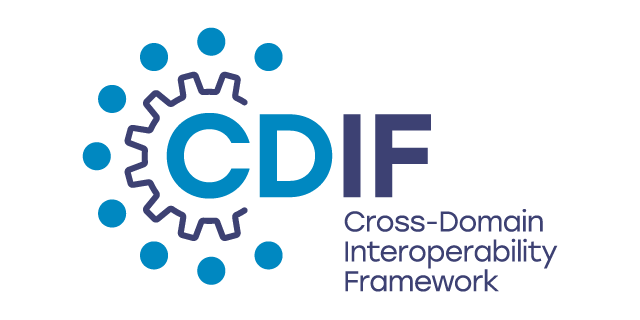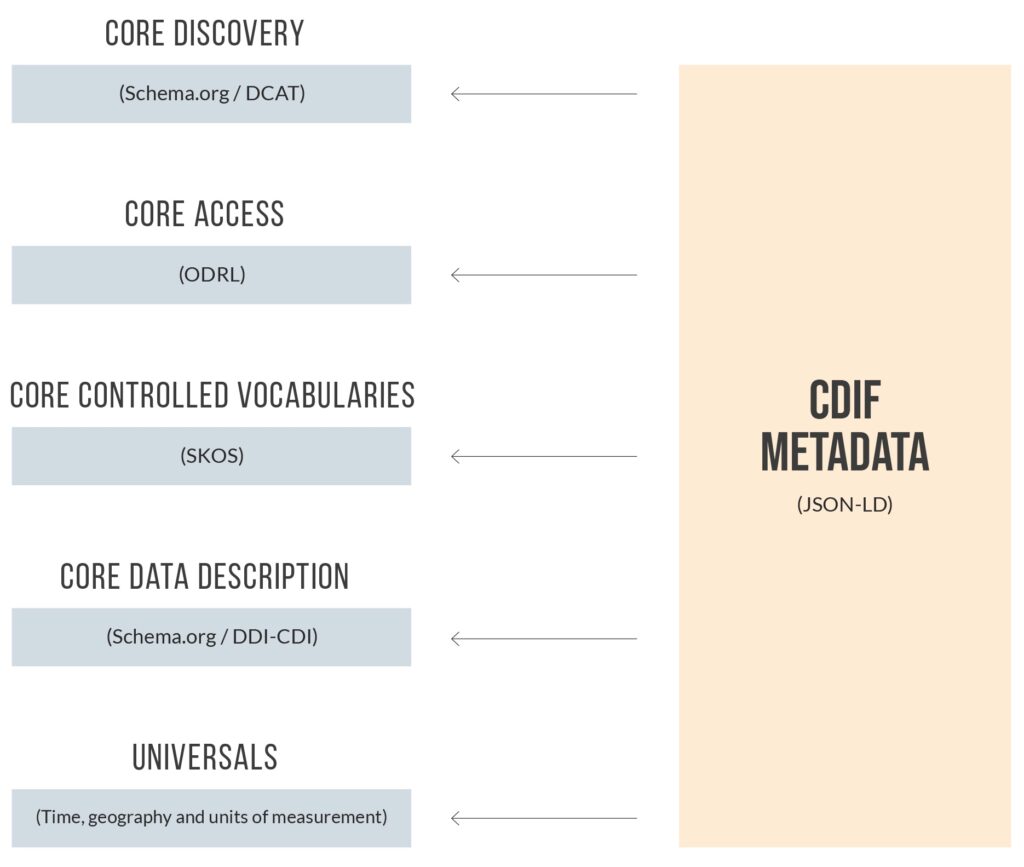 What is the Cross Domain Interoperability Framework (CDIF)?
What is the Cross Domain Interoperability Framework (CDIF)?
The Cross Domain Interoperability Framework (CDIF) is a set of practical, implementation-level principles designed to improve data management practices within any community and lower the barriers to cross-domain data reuse. CDIF offers standards and methodologies for achieving different levels of interoperability necessary for reusing data across diverse domains. It is built around five core profiles that address the essential functions for implementing cross-domain FAIR principles.
 1. Discovery
1. Discovery
CDIF supports basic resource discovery on the web through several key components:
- A content model for structuring data, based on various existing metadata schemes.
- A JSON-LD serialization for data exchange.
- An implementation based on Schema.org and the DCAT RDF vocabulary.
- Workflows for publishing CDIF metadata, making resources easily discoverable and indexable by search engines using standard web technologies.
2. Enabling Data Access and Use
CDIF defines machine-actionable methods for accessing “open” digital objects without restrictions. For resources with access restrictions, CDIF:
- Codifies processes to define and evaluate access and usage conditions.
- These conditions are expressed as policies using the Open Digital Rights Language (ODRL 2.2) standard, associating policies directly with each digital object.
- Enables these policies to reference attributes of other digital entities, such as prospective users, their organizations, projects, and the systems where digital objects will be used. These attributes are crucial for ensuring users meet the necessary conditions to access resources (e.g., datasets) through Linked Data and ODRL 2.2.
3. Controlled Vocabularies
This profile outlines best practices for the management and publication of controlled vocabularies and other semantic artifacts, ensuring consistency of approach to enable greater interoperability across domains.
4. Data Integration
This profile provides resources that facilitate automated data integration by:
- Offering descriptive resources for representing the structural and logical aspects of data elements (e.g., DDI Cross Domain Integration (DDI-CDI)).
- Providing specifications for defining the semantic meanings of data elements (e.g., SKOS thesauri).
- Supporting processes for disaggregating and reassembling data at semantic, logical, and structural levels to enable seamless data integration across different systems.
5. Universals
This profile provides recommendations of ‘universal’ elements, including time, geography, and units of measurement, which are applicable across different domains for consistent interpretation and interoperability.
CDIF Book
CDIF was first released in May 2024 as an output of the WorldFAIR project. The point of reference for CDIF and its component profiles is now the CDIF Book.
This page last updated: 2024-11-07.
